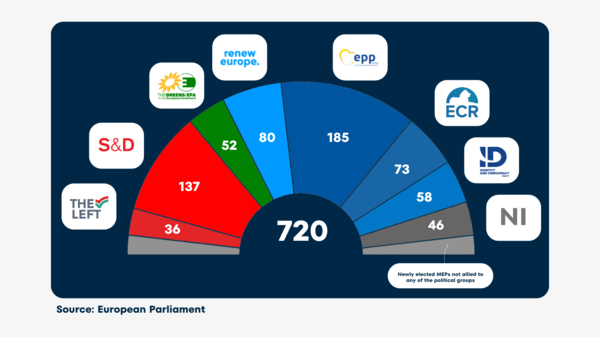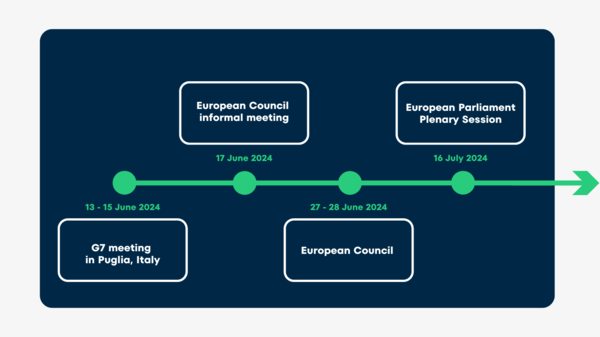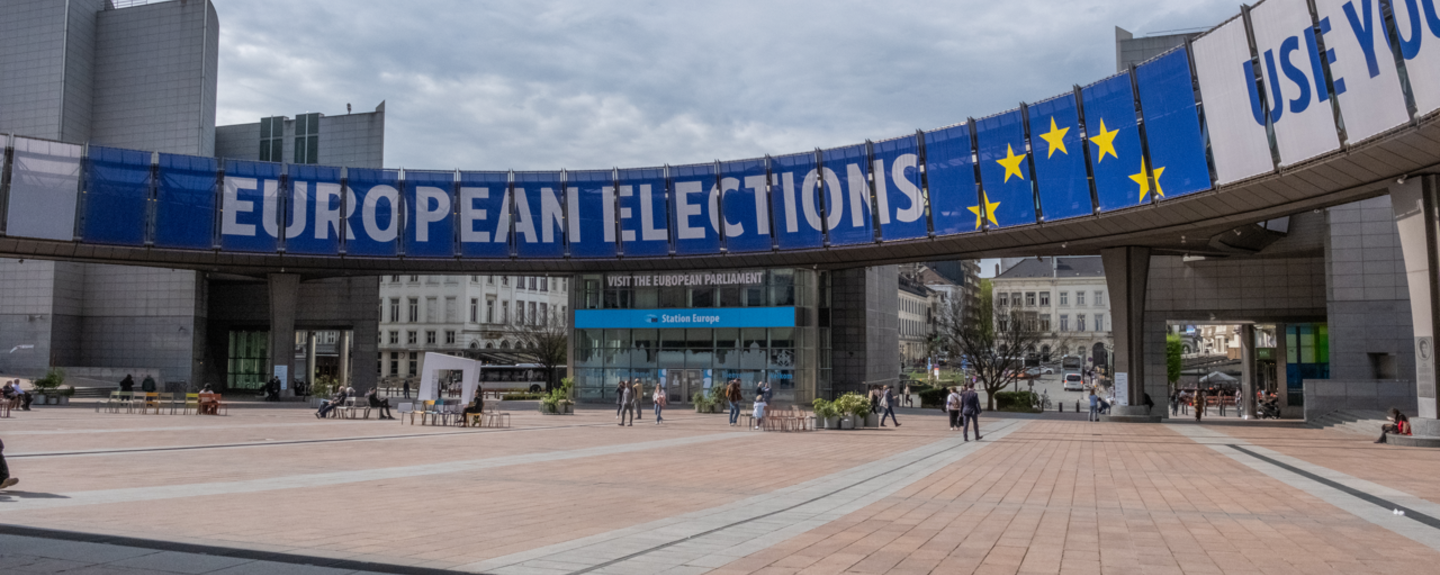EU Elections 2024: Results and First Consequences
Around 360 million Europeans had the right to vote between June 6th and 9th to choose their 720 representatives at the European Parliament. The traditional centred majority (EPP + S&D + Renew Europe) remains viable but the higher number of representatives from the far-right and the decline of Renew Europe and The Greens show that new majorities and a more conservative and Eurosceptic approach will most likely remain influential in the next term.*
After months of polls and anticipation of the results, Monday, June 10th has finally arrived, and we can analyse the provisional results of the elections and the first reactions both at the EU and national levels. If you thought that the last month had been intense, try to catch your breath to follow the rumours and news to come in the EU bubble concerning the top jobs of the Union for the next 5 years during the next month and a half.
The results of the elections: Winners and losers

With 15 extra seats to distribute compared to the end of the IX term, the centre-right EPP has grown 8 seats (from 176 to 184 seats) and led the elections in 11 member states. But the groups growing the most are the far-right ECR (from 69 to 73) and ID (from 49 to 58) which have become the 4th and 5th force in the EP respectively.
These groups can grow even further depending on the changes in the adhesion of different national parties that are currently considered part of a political group -such as VVD about which RE is expected to decide in the next days after the government agreement reached in The Netherlands-, non-attached -as the German AfD party that was expelled from ID-, or newly elected MEPs still not allied to any political group.
In the last weeks, there have been declarations from leaders about forming a bigger far-right group combining MEPs from these different families. It is quite significant that far-right parties are 1st or 2nd force in many Member States including the EU founders France, Germany, Italy, Belgium, or The Netherlands.
The Socialist group remains stable with 139 seats, the same number as in April 2024. But the most noticeable decrease in seats has been for the liberals (RE has lost more than 20 seats coming from 102 to 80) and the green family (from 71 to 52 seats).
These results do not show a clear move towards conservative or Eurosceptic positions but will have an impact at crucial moments when voting on rules concerning topics including for instance green ambitions as was already the case with the SUR or the NRL works.
First consequences
In a movement resembling to what Pedro Sánchez did in 2023 after the regional elections in Spain, Macron called for legislative elections in France once results were announced. His liberal coalition could only secure 14.6% of the votes compared to the 31.4% obtained by Le Pen’s Eurosceptic party Rassemblement National. Elections will be held on June 30th and July 7th.
At the EU level, Ursula von der Leyen, who had expressed sympathy for the ECR group and governments such as Meloni's in Italy during the campaign, declared her intention to repeat the grand coalition with socialists and liberals as a bastion against the extreme left and right forces in Europe after the first results were in. Those groups -socialists and liberals- during the campaign expressed their disagreement with those mentioned sympathies.
So… what’s next?
Now the real race for the top jobs (European Commission President included) starts. Fasten your seat belts as June comes full of key dates to keep an eye on and rumours. As of today, June 10th, political families in the EP are starting their discussions on the composition of the different political groups.

This same week, from June 13th to 15th, G7 leaders (including von der Leyen, Scholz, Michel, Macron, and Meloni) will meet in Puglia where informal discussions among leaders are to be expected. Next Monday, June 17th, the European Council will gather in an informal meeting.
By the end of the month, the names of the candidates to occupy the top jobs (EC and European Council Chairs among others) should be decided as the European Council is set to meet on June 27th and 28th to take a decision. Next on July 16th, the EP will vote on its President for the next 2.5 years. It is still to be confirmed if, during that Plenary session, MEPs will also vote on the candidate to occupy the Presidency of the European Commission. This vote is by secret ballot. First rumours suggested weeks ago that this vote would take place in September but recently there has been stronger support for a fast vote before the summer break.
*Note that all the figures included in this piece are based on the information available at the moment of writing this article at the official website of the European Parliament and may change over the next days when counting of the votes is finished. Source: https://results.elections.europa.eu/en/











